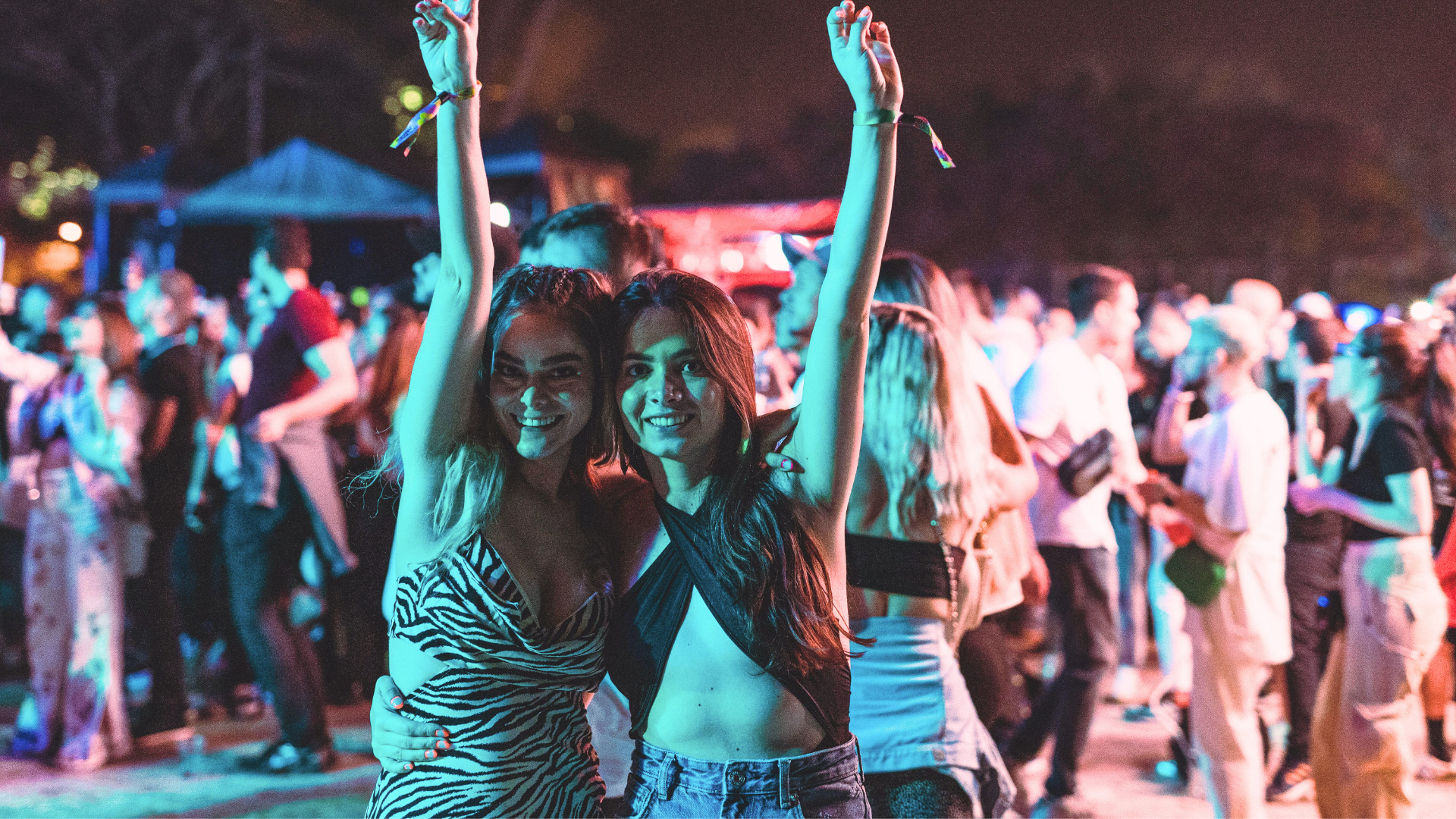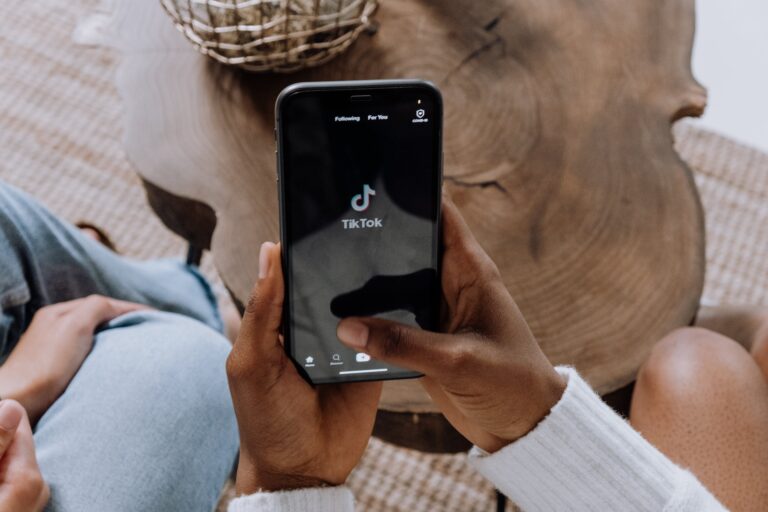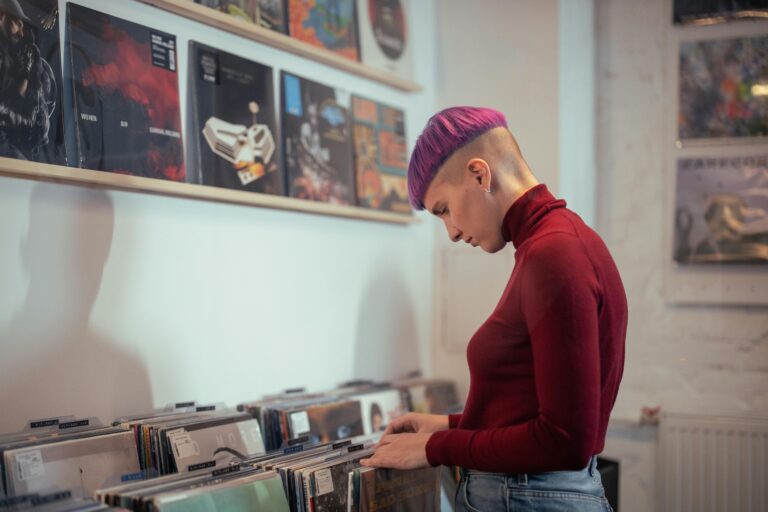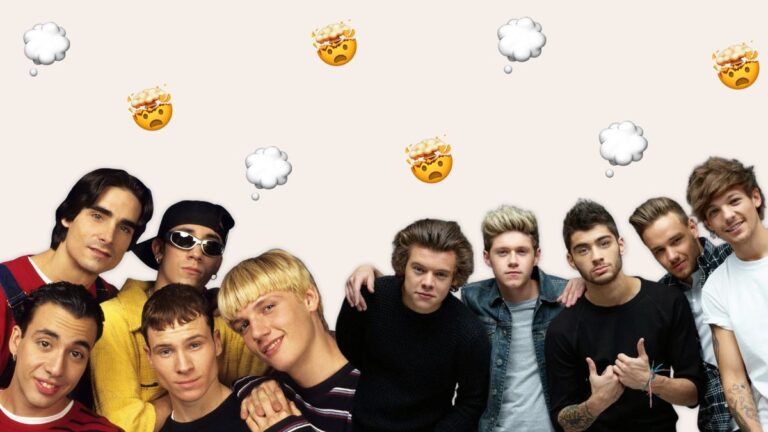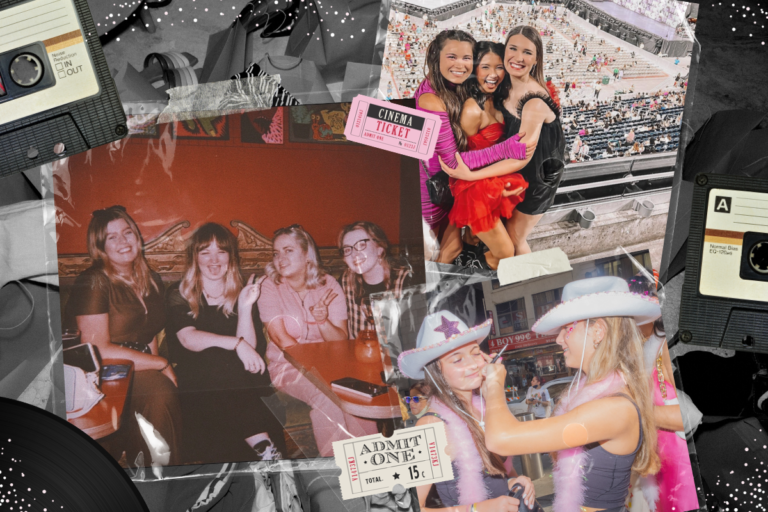What Music Fandom Teaches Girls About Power, Identity, and Belonging
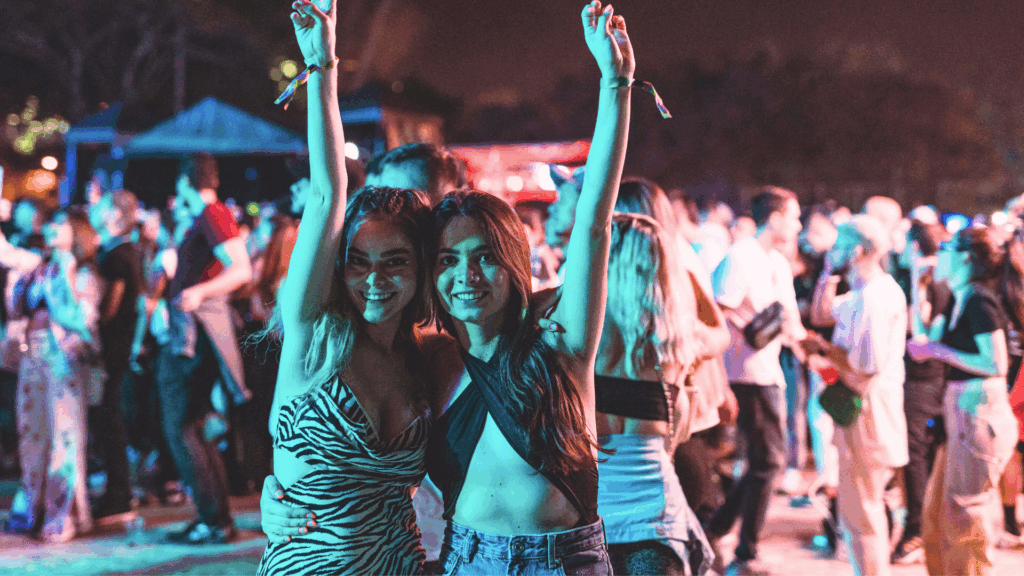
From the rise of the Beatles to the global frenzy of One Direction, girls and young women have been at the forefront of various music fandoms.
Whether they’re a part of fan communities or are shaping pop culture, they’re exceptionally passionate, love hard, and are extremely fierce. However, this devotion is sometimes seen in a negative light. To someone who isn’t a hardcore fan of a music artist, they may think it’s a bit strange to dedicate time to support a person who has no idea who they are.
But I beg to differ.
Let’s take it back to March 2015, when Zayn Malik left One Direction. Many young girls and young women were in distress over this.
Why?
Well, One Direction was an escape from reality for many. For five years (2010-2015), fans had built a connection to the group. They found comfort through their music and themselves as individuals. They formed friendships with classmates who shared the same interests.
Being a fan of One Direction was their home away from home.
And especially with modern-day technology like social media, fans were able to have even more of a connection with the band members, such as being able to tweet them and like or comment on an Instagram post at the palm of their hands, hoping that one of the members would see it. Zayn leaving the band felt like their world came crashing down.
In an article titled Fangirls Aren’t Silly, They’re Powerful, Say’s Playwright, Yve Blake, the writer of the comedy musical, Fangirls, describes how the idea of this musical came upon her when Zayn Malik left One Direction.
“People started calling these young girls crazy, hysterical and psycho, I asked myself the question – would the same words be used to describe male football fans? The girls screaming at the top of their lungs at Taylor Swift concerts are cringe, but men running around with their tops off and fist pumping the air because England scored a goal are just supporting their country.”
If you think about it, is there a huge difference between the two? Why is one labelled as passionate and loyal, and the other as psychotic and crazy? This double standard reveals a lot about how society views different kinds of passions.
For many girls and young women, being a part of a music fandom offers so much more than just entertainment. Their passion has driven them to build connections with artists.
An example? The official Olivia Rodrigo fan account (liviesHQ) reached out to multiple fans asking them for their information to send them an official Olivia Rodrigo merch bundle ahead of the Netflix GUTS World Tour film release. The merch bundle consisted of many Olivia Rodrigo goodies, such as a GUTS World Tour t-shirt, an Olivia Rodrigo Stanley Cup, a tour setlist, a movie poster, etc.
Olivia Rodrigo fans were also able to become GUTS tour guides for the shows they were attending, allowing them to vlog their experience on the official liviesHQ Instagram account.
Some other perks of being a part of a music fandom? For starters, fandom culture can offer a creative playground where girls and young women develop skills which can include but are not limited to video-editing and writing. Think about fan-edits (Harry Styles fan-edits are always a 10/10), or even creating unofficial fan trailers for unofficial artist documentaries.
Graphic Design? Creating fan art or potential album covers, like this single cover art designed by a fan.
Writing? Think of fanfiction writers like Anna Todd, the creator of the Wattpad fanfiction series, After, which features inspiration from Harry Styles. Not only did the After fanfiction series transition into a novel series, but later on, it also became a popular film series. Anna Todd is now an author and a film producer!
And let’s not forget event planning. Fan meetups and fan projects contribute to the success of an artist. In One Direction’s documentary titled One Direction: Where We Are: The Concert Film, Italian fans gathered to create a stadium-wide display where the audience each held up a piece of paper that formed the words “We Are 1D Family,” which went viral. This message created an intimate moment between the fans and the members of the group, leaving them emotional and grateful. You never know, someone who constantly creates fan meetups could potentially work as an event planner for their favourite artist someday!
Not only are these skills rooted in genuine passion, but they’re also incredibly valuable in the long run, especially if they want to have a career in said skill. Video editors can create tour visuals for an artist and a fan-fiction writer could take it up a notch and study journalism, which would allow them to interview their favourite celebrity.
Take marketing, for example. For girls and young women, it isn’t just about listening to a new album and learning the lyrics, it’s about pushing that album into the world.
How?
Their passion drives them to promote an album by sharing it on their social media platforms, using hashtags, using songs in TikTok videos or Instagram reels by starting online trends or filming a quick Get Ready With Me video, which then allows the artist to grab attention from casual listeners, and enables the album to reach charts like the Billboard Hot 100 and of course, spike stream numbers. It’s a brand strategy.
Fangirls often find a sense of belonging by networking with other fans in online communities like X, formerly known as Twitter. Online platforms like these become support systems where fans not only share theories, memes, and live reactions but also create real friendships with people from different countries, time zones and cultures. It allows them to feel seen. And when girls feel seen they become powerful.
Fangirls also aren’t afraid to stand up for what they believe in. These online communities enable them to have a voice, and not be afraid to use it. They aren’t afraid to stand up for what’s right and disagree with others, especially an artist they support. Lots of artists have received backlash from fans for not using their platform to speak up on global issues or even politics.
Or even backlash for a song collaboration.
For instance, Tate McRae fans were not too fond of her collaboration with Morgan Wallen for his song What I Want. For context, Wallen has been involved in quite a few controversies like using racial slurs and throwing a chair from the rooftop of a Nashville bar, which got him arrested.
Fans flooded Tate McRae’s Instagram comments and her Twitter mentions, saying things like “Now why would you go and do that?”, “I’m a Tate McRae fan and a Morgan Wallen hater so I’m going to have to think long and hard about whether or not I ever want to listen to this song,” “We love u but this is not acceptable.”
In this day and age of digital media, it allows young girls and women to express themselves through various online platforms. Whether it’s by using their voice to speak on what matters to them, like raising awareness on social justice issues or starting a fan project. These platforms allow individuals to experiment with their identities in a way that feels authentic and empowering.
Looking at it from another angle, being part of a fandom is like an unpaid internship. You’re not getting paid, but you’re getting experience– valuable experience, and are polishing up your skills. These young women are doing the work of digital marketers, graphic designers, writers and video editors, without proper training, and often without recognition. They’re building resumes without even realizing it, driven entirely by passion and dedication.
The music industry would not function without the fangirls. In fact, they’re shaping the industry. It’s the young fangirls selling out world tours, organising fan projects, and pushing songs on the charts. Without them, albums wouldn’t skyrocket in sales and singles most definitely wouldn’t land their spot on the charts. Artists wouldn’t even get nominated for the Grammy’s or VMA’s.
So the next time someone dismisses young girls and young women for supporting their favourite artist, ask yourself: is it really any different than boys obsessing over their favourite football team? At the end of the day, it’s all passion, just with a different twist.
Fangirls aren’t silly, they’re not crazy or psychotic; they’re passionate, creative, and powerful.
All whilst doing what they love.
As the wise Harry Styles once said, “How can you say young girls don’t get it?” Styles pointed out. “They’re our future. Our future doctors, lawyers, mothers, presidents, they kind of keep the world going. Teenage-girl fans — they don’t lie. If they like you, they’re there. They don’t act ‘too cool.’ They like you, and they tell you. Which is sick.”
So, here’s to the young women and young girls who are paving the way for the music industry– the future music video editors, authors, journalists, CEOs of record labels, and musicians.
Here’s to the fangirls.

